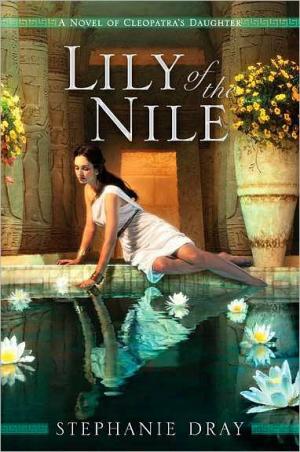Lily of the Nile: A Novel of Cleopatra's Daughter

Lily of the Nile is a treat for lovers of colorful historical fiction. An intriguing reconstruction of the ancient cult of the goddess Isis, the book is set in the last years of the first century B.C. in Alexandria and imperial Rome. The novel is told from the viewpoint of Cleopatra Selene, one of the children of Mark Antony and the most famous Cleopatra of all, the celebrated Queen of Egypt. Princess Selene is only ten years old when her parents commit suicide rather than fall into the hands of a victorious Octavian. Taken captive by the Romans, Selene must use all her intelligence and diplomatic skills to survive.
Stephanie Dray, a Smith College graduate and a specialist in Middle Eastern studies, evokes very well the smells, sounds, sights, and feelings of the classical world. Though she bases much of her writing on documentary evidence, she does not try to be impartial: a prefatory note to the reader announces that she has “unabashedly adopted the slant most favorable to Egypt, Selene, her family, or to the Isiac faith.” The view of Rome and Romans is thus largely unflattering.
Upon meeting the Emperor Octavian for the first time, the heroine is impressed by the “wintry ruthlessness” of his gaze. Growing up part hostage, part political pawn in the imperial household, Selene's life allows Dray to contrast Roman and Egyptian ideals of proper gender roles for women and to “explore ancient sexual morality.” The presence of temples to Isis in Rome itself is key to the story, for Selene is regarded by her co-religionists as a new incarnation of Isis, and thus possesses an influence that Octavian wishes to use for his own purposes.
The culture wars between Roman and Egyptian values are set in the frame of the prophetic expectations that preceded the birth of Jesus and the beginnings of Christianity. In the author's note at the end of the book, Dray advances the thesis that the religion of Isis influenced early Christians and prepared the way for present-day spirituality.
Selene's successful pursuit of political power and religious freedom is meant to inspire the young women of today to pursue their own dreams. The book includes a six-page Readers Guide that poses discussion questions on the story, the history, and the cultural implications of the novel. Lily of the Nile would be a thought-provoking choice for a girls' book club or a women's studies class, and I encourage anyone with an interest in history or religion to pick this one up.